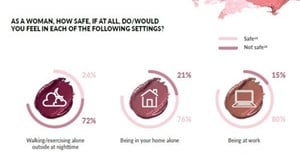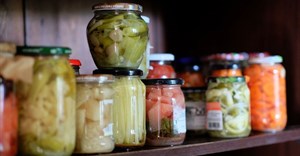Trending




 Sabre EMEA 2024 Awards: Razor PR, Retroviral top SA agenciesDanette Breitenbach
Sabre EMEA 2024 Awards: Razor PR, Retroviral top SA agenciesDanette Breitenbach
Elections 2024
Roundtable proposes a unified, globalised approach to food safety

Public confidence in food producers, processes, sellers and government regulators has been shaken as a result of food safety related incidents around the world. Good collaboration between governments, producers and consumers will help to improve food safety – the handling, preparation, and storage of food in a way that best reduces the risk of people becoming sick from foodborne illnesses.
These were among the findings of a recent roundtable, held in Johannesburg and hosted by Mondelez South Africa, which brought together a panel of experts to discuss food safety compliance and the road to developing a safety-centric culture for consumers.
On the panel were Bhekisisa Dlamini (lecturer in food technology at the University of Johannesburg), Roy Kirby, (global director, microbiology and food safety, at Mondelez International), Matlou Setati (food safety executive at Consumer Goods Council of South Africa [CGCSA]), and Peter Manganye (director of environmental services at the City of Joburg). The session was chaired by news anchor Cathy Mohlahlana.
Trends impacting food safety
The discussion was held against the backdrop of three current trends that have an impact on food safety:
1. The globalised food trade – with more food being traded across borders, there is a demand for a more consistent approach to food safety and quality standards across geographies.
2. Supply chain complexity – with the global food trade becoming subject to more regulation, supply chains are more complex and there is a need for greater integration, safety and traceability.
3. Consumer empowerment – consumer expectations are increasing with the growing knowledge of food safety and quality issues. The questions is whether food companies are investing enough in consumer education.
Re-establishing trust in food manufacturers
“We need to have greater dialogue on how to improve the relationship between the food industry and government,” said Kirby. “This is key to re-establishing trust in food manufacturers. We also need a more consistent approach to quality standards, and to improving consumer education on food safety.
South Africa is a signatory to Codex Alimentarius, the body set up by the Food and Agriculture Organisation (FAO) and WHO, that sets international standards relating to foods, food production and food safety. The country also abides by Hazard Analysis and Critical Control Points (HACCP) a systematic preventive approach to food safety from biological, chemical, and physical hazards in production that can cause food products to be unsafe, and designs measurements to reduce these risks to a safe level.
“These frameworks form the basis for food safety management in the US, Europe and South Africa,” says Kirby. “They are paving the way for a global food safety initiative that is aimed at growing consumer trust.”
The CGCSA’s Setati noted that South Africa complies with much food safety legislation and has systems in place to ensure quality. “Consumer trust, however, is an issue. The more people learn about food production, the more nervous they are becoming about factors like microorganisms. We need consumer education programmes that demystify microbiology.”
Dlamini concurred with this view, noting that social media has helped to fuel public fear around food safety. “Another major issue is that although we have good standards in place, as is the case with most developing countries, enforcement is another issue entirely.”
Enforcing regulations
The panel agreed that the entire food value chain – consisting of all the stakeholders who participate in the coordinated production and value-adding activities that are needed to make food products, from farm to table need to adhere to the regulations in place. This includes producers, processors, distributors, consumers, and government and NGOs.
“There are role players at every point in the food value chain,” said the CoJ’s Manganye. “When food is ready to be consumed, people have a reasonable expectation that it is safe. Regulators and industry have the responsibility to ensure that anything that may have been missed is picked up at some point in the chain. We have checks and balances in place, but there is fragmentation as a result of the vast number of role players.”
The South African food control system is burdened by the challenges that come with a safety and quality system that is complex and fragmented. Food regulation comes under the jurisdiction of several different departments and acts. In some instances, such as the Foodstuffs, Cosmetics and Disinfectants Act of 1972, legislation is also outdated.
Adopting a global approach
“When you look at how fragmented operations are, not just in South Africa, but in the rest of the world too, the question should be, ‘what are we doing to communicate better?’ said Kirby.
He continued: “As a global company, Mondelez International often faces difficulties when dealing with regulatory environments across multiple territories. That is why we are advocating for a standard of food safety that can be applied across the world. This is especially important in a global economy, where raw material is sourced from one country, the products are processed in another, and then sold in a third. It’s vital to encourage developing markets to raise the bar and to think about adopting a global approach that leverages science to set standards – even for smaller suppliers.”
On the question of whether compliance may come down to what food companies are prepared to spend, the panel was unanimous that food safety is the price of entry into this market. “The costs of regulation have to be incorporated from the outset,” Kirby stressed. “If your business model is so sensitive that it cannot carry the cost of food safety, then it’s not a strong model at all.”
The panel agreed that one single approach to food safety was required, involving cooperation, openness and dialogue between the relevant sectors of government, and all industry players.
It was noted that at the 2018 Global Food Safety Conference in Tokyo, greater collaboration was encouraged between government regulators and the private sector for the advancement of food safety. The importance of public-private partnerships was identified as key to driving progress on operational approaches to food safety culture and implementing robust food safety systems in developing markets.
“We all have a role to play in restoring and growing public trust in the safety of food products,” said Kirby. “A safe food supply chain is seen as a priority by governments around the world, and South Africa should be no exception.”











